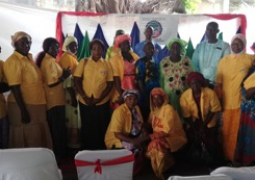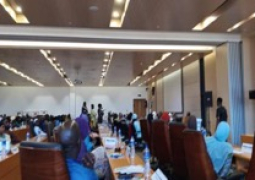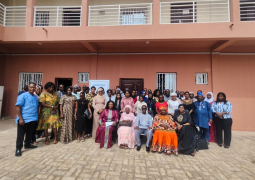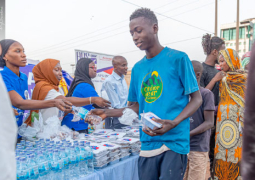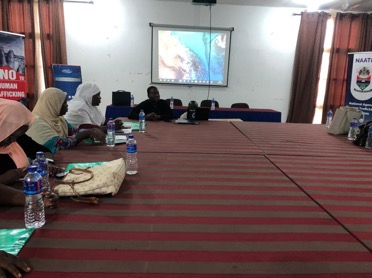
The training held on issues relating to identifying and getting familiar with human trafficking cases, also forms part of the agency’s mandate to prevent, protect and prosecute trafficking cases in the country.
It is important to state here that the government has committed resources in that regard to continue its efforts and prosecute perpetrators, so as to deter and end this heinous crime in the country.
Addressing the gathering, Isatou Dabo, executive director of National Agency Against Trafficking in Persons, described the interface as crucial in creating awareness about TIP, recalling that over the past years, the dynamics and approach towards trafficking in Persons cases has improved a lot.
That, she added, is amply demonstrated with the greater coordination and cooperation between NAATIP, adding that the shelter has been providing tremendous support to the agency despite the difficulties and challenges of space they may encounter.
“However, in our quest to ensure that we provide the necessary support to victim of trafficking in persons, it is important continuous training takes place for all stakeholders that work in the area of protection. On our part at NAATIP, protection can come in two forms; one is procedural that is ensuring that during the process of screening, investigation and all issues that have to do with interaction of victims of trafficking of persons, we adopt trauma informed approach to ensure that the care that we provide is adequate or sufficient for the needs of that particular victim.”
Dabo, however, revealed that the other issue is not dealt with by the agency alone, adding that the other aspect of protection would be short term shelter.
To that end, she acknowledged that when the agency receives cases, these cases are then referred in the case where the victim needs some form accommodation for a short period of time, then it becomes an issue that one has to deal with.
“You may encounter various challenges from victims retaliating, proving to be difficult when trying to process their trauma, victims that are choosing to fight or not eat the food that is being provided. Despite all of these, it is important that we continue to facilitate the necessary training so as to help you better understand why is the victims doing this, what are the underlying factors.”
She thanked the management of the shelter for the work they continue to do for victims of trafficking, further expressing optimism that their collaboration will improve in the near future.


